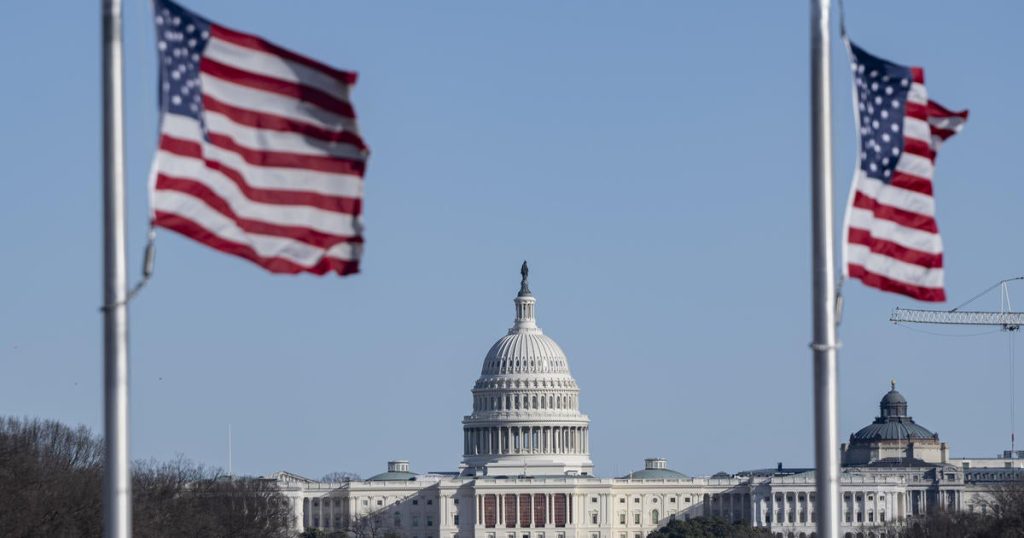The 119th Congress begins with Republicans in control of the House and Senate for the first time since 2019. Speaker Mike Johnson is facing some opposition within his own party during the leadership vote. In the Senate, Republicans officially take the majority after the November elections. The new term of Congress begins on Friday, with House members expected to be sworn in, followed by the Senate.
The speaker’s election process includes nominations from each party and a vote on the House floor. Johnson won the backing of Republicans for another term, while Minority Leader Hakeem Jeffries will be nominated by Democrats. The candidate with the majority of votes cast wins the speakership, and if no candidate wins initially, the vote is repeated until someone secures the majority. Republicans will have a 53-47 majority in the Senate, while they hold a narrow majority in the House.
Republicans’ top priorities for the new Congress include immigration, border security, energy policy, and extending tax cuts from the previous administration. They plan to use budget reconciliation to pass legislation with a simple majority. However, Trump’s call for an increase in the debt ceiling could complicate their legislative priorities. It will take consensus among Republicans to get their agenda passed.
Over 60 new members are joining the House in 2025, including both Democrats and Republicans. The new members come from various states across the country and will play a role in shaping the legislative agenda for the next two years. In the Senate, ten new senators will join the upper chamber, including four Democrats and six Republicans. Some new senators have already been sworn in, giving them an edge in seniority over their colleagues.
The balance of power has shifted with Republicans holding the majority in both chambers of Congress. The new Congress will have to work together to address key issues such as immigration, border security, and tax policy. The leadership in both the House and Senate will play a crucial role in guiding legislative priorities and navigating potential conflicts within their own parties. Overall, the 119th Congress will set the tone for the next two years of governance in Washington.


